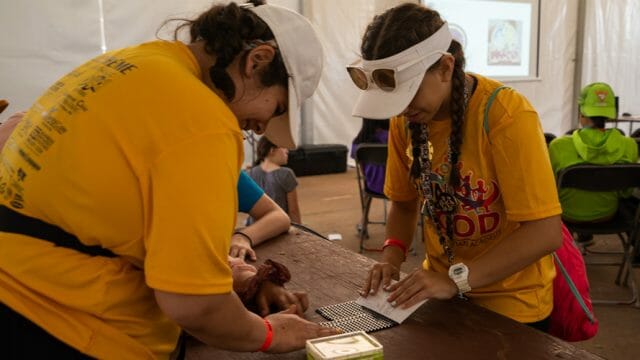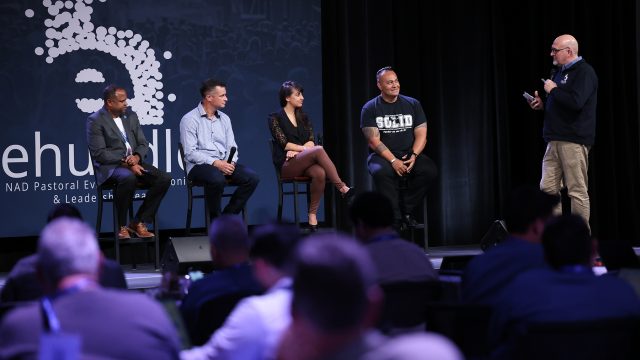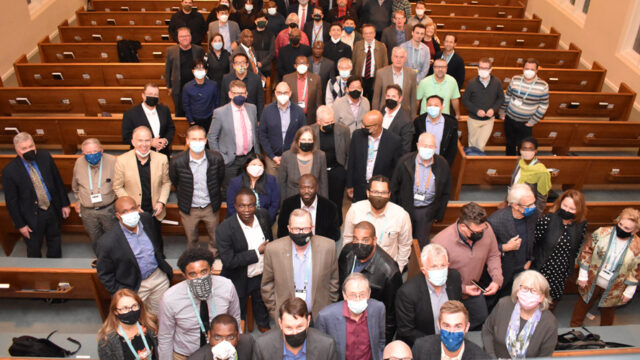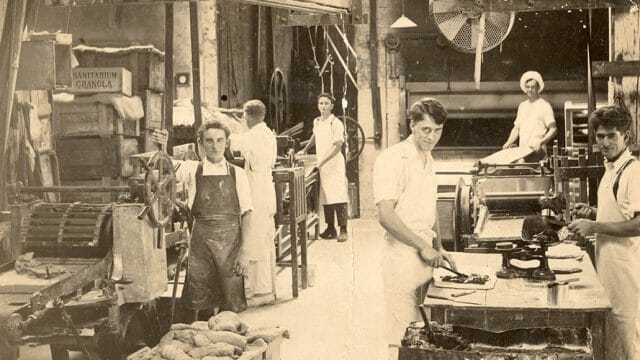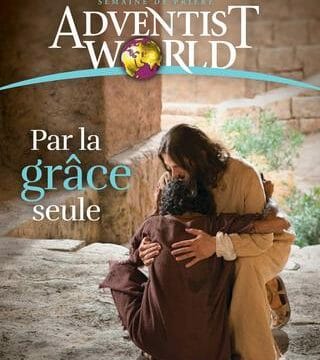Out of the fire God spoke to us— loud and clear.
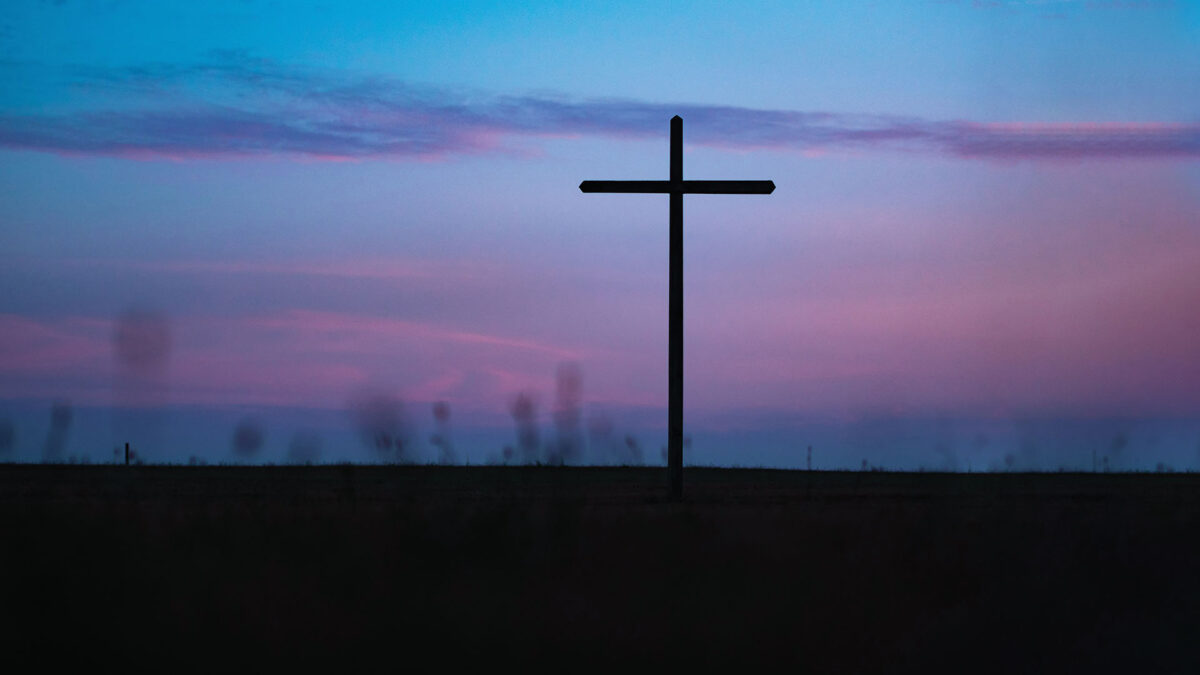
Consider this scene inside a funeral home: a grieving family gathered around the casket of a departed loved one. The camera captures the lines of grief etched on their faces: the pain is heartbreaking; the tears flow freely. They look so hopeless; so abandoned; so alone. Even God seems to have deserted them. Then the camera moves a few steps back and captures the same scene. But from this wider angle, we see more than just the grieving family; we see the wall behind them. And hanging there is a picture of Jesus with His arms outstretched—looking down in love and compassion upon the beavered. You are not alone, says Jesus. Even as you walk through the valley of the shadow of death, I am with you (see Ps. 23:4).
WHEN ALL ELSE IS GONE
When tragedy strikes, it’s tempting to become so focused on our loss that we fail to recognize that God is still with us. When all else is gone, what remains is God. No one understood that better than Job. In a single afternoon he lost everything—his health, his wealth, his children, his friends; even his wife turned on him: “Curse God and die,” she told him (Job 2:9). But what did Job do? “Then Job arose, and rent his mantle, and shaved his head, and fell down upon the ground, and worshipped” (Job 1:20, KJV)—and he blessed the name of the Lord (see verse 21). What gave him the strength? The answer is found in Job 19:25. And Job said: “For I know that my Redeemer lives, and He shall stand at last on the earth.” Notice where his focus is? Not on what has been taken away—but on what remains. Everything is gone—but God remains. The lesson for us: If through all our trials our dependence on God’s faithfulness remains intact, then, like Job, we have the foundation on which to rebuild.
THE SHADOW OF A CROSS AROSE
This truth was driven home to us in a most dramatic way. The Reaching Hearts congregation purchased a piece of land in the West Laurel area of Maryland, on which we planned to build our future church. In the middle of the property stood an old house that we converted into a multipurpose building. Then, on Friday night—May 18, 2007—a mysterious fire destroyed the building. Eyewitnesses reported that as the fire raged, it created a huge hole in the midsection of the building. The two brick ends remained standing—but the rest of the building was completely destroyed. Through the large opening created by the fire, the shadow of a cross arose. It so happened that someone had planted a wooden cross behind the building only a few days earlier. And now, as columns of thick, black smoke rose into the night sky, the cross stood tall.
The words of an old hymn by John Bowring immediately came to mind: “In the cross of Christ I glory, towering o’er the wrecks of time.” On that fateful night the cross stood like a sentry—towering over the smoldering remains of what was once our meeting place. On the night of the fire, the only thing that remained unscathed was the cross; everything else was turned to ashes.
Out of the fire God spoke to us— loudly and clearly.
Here are four lessons that shone out to me after this experience:
1. Don’t place your trust in earthly treasures. One day—it may be today—they could all go up in smoke. On the night of the fire the only thing that remained was the cross. So cling to the cross; it’s the safest place to be.
2. Let nothing get in the way of the cross. The house that burned down was used for prayer meetings, small-group gatherings, committees, and planning sessions. A beehive of activity—good, wholesome activity. But it was all human activity. Unfortunately, that’s how religion is often perceived—what we do for God. Yet through all our feverish activity for God, the cross stood in the background. From the fire God spoke to us in no uncertain terms: “I want to be front and center in the life of your congregation. The cross ought to be in the forefront—not behind some building where no one can see it.” As important as human activity is, we must never forget that Christianity is first and foremost a religion of the cross; it’s the story of what Christ has done for us.
That same Sabbath evening we uprooted the cross from behind the burned-down building and planted it along Brooklyn Bridge Road, on the front end of our property. Yet there is more.
3. God is closer than you think. From the cross Jesus cried out: “My God, My God, why have You forsaken Me?” (Matt. 27:46). Yet God uses the cross—the ultimate symbol of separation, alienation, and forsakenness—to win us back to Himself. The cross was heaven’s deepest entry into the human experience. It was there that Christ endured the pain of separation from the Father—so that we don’t have to be separated from God any longer. It’s because of the cross that our Savior can say to us in our times of deepest anguish and pain: I know how you feel; I’ve been there, and I am going to walk with you every step of the way.
4. We serve a God who can pick us up from the ashes—and give us a new beginning. The cross continued to stand by Brooklyn Bridge Road together with the charred remains of the old house sitting amid the ashes. About a year later the county stepped in and ordered us to tear the building down and haul away the debris. In time the entire area was covered with grass, and with it all memory of that old house was wiped away.
For more than a decade after the fire, the cross continued its lonely vigil—keeping a watchful eye over our church property. Drive down Brooklyn Bridge Road today, and you’ll see a miracle of God’s redeeming grace: the beautiful Reaching Hearts Seventh-day Adventist Church—standing literally upon the ashes of the old burned-down building.
THE CROSS STILL STANDS
Today that cross still stands—no longer beside a lonely road in West Laurel, Maryland, but behind the pulpit of this new church building—a constant reminder of God’s faithfulness to His people. The God who created this world out of nothing came through for us. He can do the same for you—no matter how broken and messed up your life might be right now.


